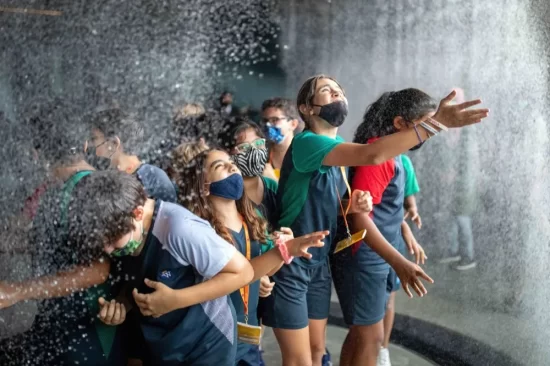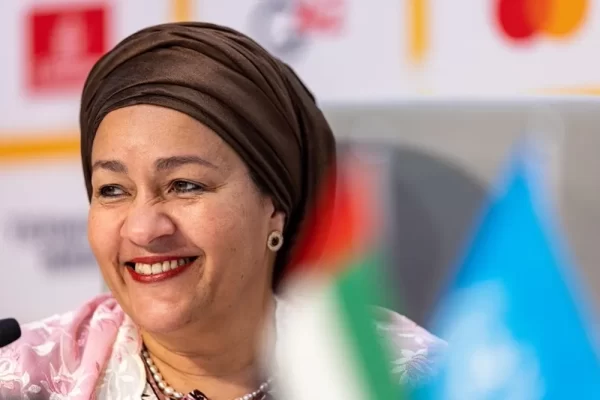DUBAI, 21 January 2022 – The common practice of having mostly-male experts in TV discussions is one of the areas that needs to change if we want to achieve real gender parity, the United Nations Under Secretary General for Global Communications, Melissa Fleming, said on Thursday (20 January).
Addressing a ‘Visions and Journeys’ Women’s Majlis at Expo 2020 Dubai’s Women’s Pavilion, which explored challenges to gender equality, Fleming said most discussions on COVID-19 consisted of ‘manels’ (panels of men), where 75 per cent of the experts tended to be male. Fleming said this was true in most fields, as she called for more equal representation for women.
Touching on her personal journey, Fleming urged women around the world to be “true women” and embrace their differences. “When I was pregnant, I was very nervous about appearing with a big belly in front of people, and I wondered what my boss would think, or what people would say about me.
“I was trying to wear this male mask, but I started to feel feminine with a child in me, and things started to change. When I gave birth, I can say that I received nothing but warmth and encouragement, which is what encouraged me to always act like a woman, without having to act like a man.”
Fleming also said girls’ education was “tremendously important”, and added that this particular priority of the UN was severely affected by the COVID-19 pandemic.
When asked about her book, A Hope More Powerful Than the Sea, Fleming elaborated on the protagonist – a young Syrian refugee, Doaa Al Zamel, who survived for four days after her boat sank. She said the girl, whose fiancée died during the trip, saved two little children she did not know, after their parents entrusted them to her before they died.
“Perhaps Doaa clings to hope in life to save these two young children. Is this not proof that hope is stronger than the sea?” Fleming said.























